© 2024 Olga López
© 2024 Urantia Association of Spain
Urantia Association of Spain Newsletter
Luz y Vida — March 2024
¶ In this issue
- Urantia talk for March
- Editorial – March 2024 — M. José Sánchez Santamaría
- Works – our recommendations of the month
- History and teachings: Chronicle of the life of Jesus
- Guide to The Urantia Book for children: Jesus at 18 years old
- Other books on spiritual growth
- Recommended audio
- Navigating the life: The mirror
- My favorite paragraph — Francisco Javier Santos Castilla
- Urantian questionnaire — Juan Antonio Figal Mañas
¶ Editorial – March 2024 — M. José Sánchez Santamaría
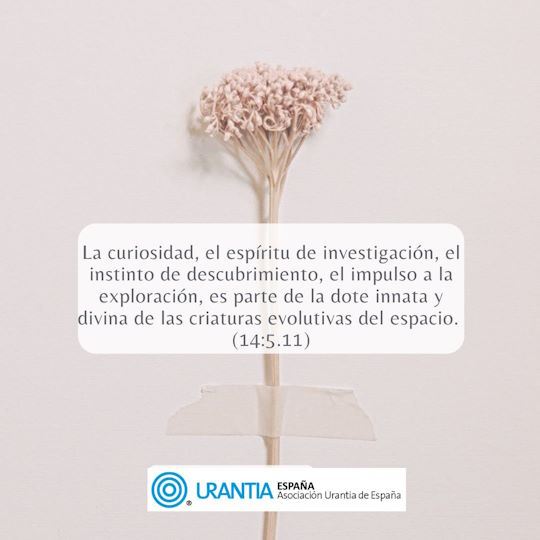
The immense usefulness of the useless
Let us think about a far-reaching invention, such as electricity. We would be in a diametrically different world from the current one if electricity did not exist and the infinite number of gadgets, applications, appliances, social networks, Artificial Intelligence, etc., that feed on and exist thanks to it. Can you imagine a world without electricity? More than one of us would shudder at the thought of it.
The research of scientists such as Ampère or Faraday on electricity has enabled us to find a multitude of useful applications for our daily lives, it is true. However, at no point in their interesting careers were these scientists interested in investigating the practical utility of what they studied. For example, Faraday was exclusively absorbed in unraveling the enigmas of the universe; at first chemical enigmas, later physical enigmas. In the end, utility appeared, but it was never the criterion to be followed for carrying out incessant experiments.
¶ Works – our recommendations of the month

Comments on the Nature of Personality (Bill Sadler)
On the Urantia Foundation website we find this transcription of one of the talks that Bill Sadler gave to a study group, in which he explains how he understands the nature of personality, as explained in The Urantia Book. As Bill Sadler reminds us, personality is one of the unsolved mysteries of the universe of universes, and so “it would be presumptuous to try to define personality. But we can describe what personality does. We can talk about what we know about it.” Thus, starting from the definition of personality in the dictionary, he goes on to explain in very simple language and making references to quotes from the book what we can know about the new meanings that are added to the traditional concept of personality.

Indicios (Antonio Moya) (also on the association’s website )
Its author begins by saying: “In a universe as large and complex as ours, it must be very difficult for God to have been able to completely hide his hand. Somewhere, clues to that hand should be able to be seen or deduced.” And that is the starting point for a series of logical reasonings that the universe is intentional and there is something when according to logic there should be nothing. And not only that: it seems that it would also be logical for there to be a Necessary Being, compared to all the contingent beings that we know and among which we find ourselves. Of course, the arguments presented will not convince those who do not want to be convinced, but they are completely logical and plausible for believers.

What does The Urantia Book teach about the dissemination of its teachings? (Seppo Kanerva) (also on the association’s website)
The late author, who was president of Urantia Foundation, begins by saying: “We may note that The Urantia Book contains no explicit instructions concerning the dissemination of the Revelation. We may, of course, study the methods employed in dissemination by the four preceding revelations and attempt to apply the same methods to the dissemination of the fifth epochal revelation.” He then goes on to discuss the methods of dissemination of the four preceding revelations and, using references from the book, to explain how the teachings of the fifth revelation are to be conveyed.
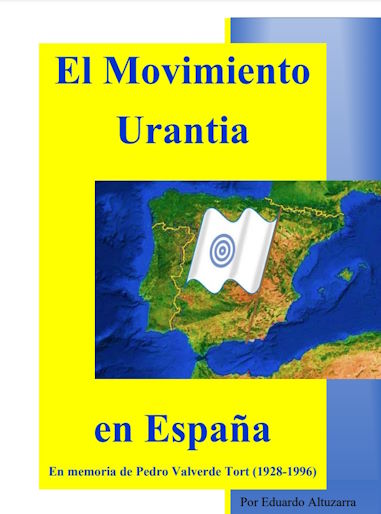
The Urantia movement in Spain (Eduardo Altuzarra) (also on the association’s website)
If there is something that draws attention in this work, at times history and at times personal story, it is the description of the key people in the dissemination of the teachings of The Urantia Book in our country. People who were not daunted by the fact that the book was in a language other than their native tongue and that there was no one else in the country to whom they could turn to obtain it; they were so determined to know its content that they resorted to all means at their disposal to drink from its teachings. Now, in the age of the Internet, it is easy to access any book from any part of the planet, but this was far from the case in the 1970s. In this story, perhaps not all who are there are, but certainly all who are there are. It was very difficult, if not impossible, for them all to be there. Perhaps we still lack the perspective that time gives; the history of the Urantia movement, like all history, is an open story to which the word “end” cannot be put.
¶ History and Teachings: Chronicle of the Life of Jesus

JOURNALISTIC ACCOUNT OF THE LIFE AND TEACHINGS OF JESUS ACCORDING TO THE URANTIA BOOK
We present to you the next installment of the chronicles of the life of Jesus, which on this occasion contains what the revelators tell us in document 153 (The Capernaum crisis).Inside the PDF you will see a button from which you can access the text of the document from the Urantia Foundation website.
¶ A Children’s Guide to The Urantia Book: Jesus at Age 18

We continue to review the secondary work A Children’s Guide to The Urantia Book, by Mary Livingston. This is the next chapter, which deals with the time when Jesus was 18 years old, and it begins like this:
“All the land and houses they had, except the family home where they lived, had to be sold. With some of the money they had left, they bought new tools for Santiago, who had already finished school. He worked as a carpenter in the workshop of the house. Jesus planned to work in the caravan store and so he bought it back.”
Download the full chapter in PDF format
¶ Other books on spiritual growth
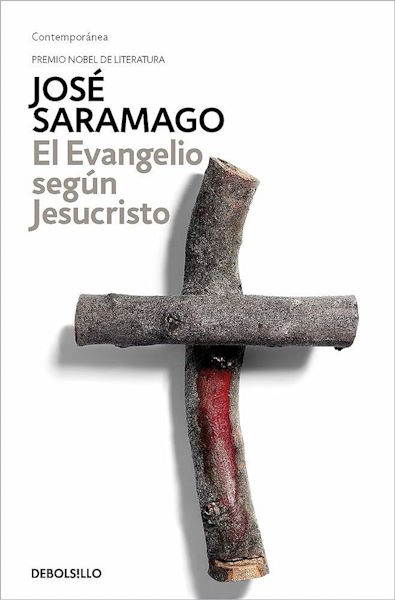
The Gospel According to Jesus Christ (José Saramago)
The Gospel According to Jesus Christ is a work written by the renowned Portuguese author José Saramago, published in 1991. The novel presents a literary reinterpretation of the life of Jesus, which explores biblical events from a unique and provocative perspective.
The story begins with the birth of Jesus, and follows his life from infancy to his death on the cross and his subsequent resurrection. Although the plot follows the general outline of the biblical narrative, Saramago stamps his own distinctive approach and provides a more human and complex view of the characters and events.
One of the outstanding elements of the novel is the attention that Saramago pays to the psychology of Jesus. Throughout the work, the author explores the doubts, internal conflicts, and interpersonal relationships of the central character. Instead of portraying Jesus as a seamless divine figure, Saramago presents him as a human being with fears, contradictions, and moral dilemmas.
¶ Recommended audio
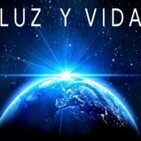
The Parable of the Minas, by Jaime Marco (Radio Urantia’s “Light and Life” Space)
This is the transcription of a presentation given by Jaime Marco, current president of the Urantia Association of Spain, at one of the annual readers’ meetings. In it, he deals with this well-known parable, which appears in document 171. Like all parables, it is necessary to put it in context in order to fully understand it. Jesus had preached the sermon on the kingdom of heaven and expressed his intention to go to Jerusalem for Passover, which the apostles interpreted as the future establishment of an earthly kingdom based in Jerusalem where he would rule as Messiah. Jesus realizes that they do not understand his message of the kingdom, and he sees his final outcome and departure approaching. That is why he imparts last-minute teachings on aspects of the kingdom of heaven, of which this parable is a part. This parable is analogous to that of the talents, and is especially addressed to the apostles.
¶ Navigating through life: The mirror

Once upon a time, there was a Chinese peasant who was going to the city to sell the rice harvest that he and his wife had been working on. His wife asked him to bring her a comb while he was on the road.
The man arrived in the city and sold the harvest. After doing so, he met up with several of his companions and they began to drink and celebrate what they had achieved. After that, and still a little disoriented, the farmer remembered that his wife had asked him to bring her something. However, he did not remember what, so he went to a shop and bought the product that caught his attention the most. It was a mirror, which he took home with him. After giving it to his wife, he went back to work in the fields.
The young wife looked at herself in the mirror and suddenly began to cry. Her mother asked her why she was crying, to which her daughter handed her the mirror and replied that the reason for her tears was that her husband had brought another woman with him, young and beautiful. Her mother also looked at the mirror and after doing so told her daughter that she had nothing to worry about, since she was an old woman.
Neither of the characters had ever seen themselves reflected in a mirror, not knowing what they really see. Thus, the wife is unable to understand that the beautiful young woman she sees is herself, while the mother also fails to see that the old woman she sees is herself. It is also noted that while the former is worried because she considers that what she sees in the reflection is more beautiful than herself, the latter critically undervalues it, practically mocking her own image.
¶ My Favorite Paragraph — Francisco Javier Santos Castilla

There are many interesting paragraphs that have stuck in my memory, but some that have been “haunting” me recently are the following:
Today, the profit-motivated economy is doomed to failure unless profit motives can be overcome by service motives. Ruthless competition based on narrow-minded selfishness eventually destroys the very thing it seeks to maintain. The selfish and exclusive profit motive is incompatible with Christian ideals—far more incompatible with the teachings of Jesus. UB 71:6.1
The profit motive is to the service motive in economics what fear is to love in religion. But the profit motive is not to be suddenly destroyed or eliminated; it keeps many otherwise lazy mortals hard at work. This exciter of social energy need not, however, be perennially selfish in its objectives. UB 71:6.2
The profit motive in economic activities is altogether base and wholly unworthy of an advanced order of society; nevertheless, it is an indispensable factor during the early phases of civilization. The profit motive is not to be taken away from men until they have provided solid higher types of nonprofit motives for economic endeavor and social service—the transcendent striving for superlative wisdom, fascinating brotherhood, and the excellence of spiritual attainment. UB 71:6.3
¶ Urantia Questionnaire — Juan Antonio Figal Mañas

Juan Antonio Figal Mañas lives in León. He is 49 years old and works as a construction worker. He is separated and has a son.
1. How did you find The Urantia Book and why do you think you found it?
I don’t remember how I found it, but I do know that it was a very difficult time when I began to realize that my marriage was broken and that my life seemed to be too. During an emotional crisis I was having, I spoke to the Father and asked him to help me find him and that I would do everything as much as my abilities allowed me. And shortly after, he arrived and I continue studying him until now.
2. What was your first impression when you read it?
I was stunned because many of the concepts I read and much of the information that was given sometimes crossed my mind, but of course, since I had preconceived notions from my Catholic upbringing, I thought that those ideas were the product of my psyche. Apparently not. What a joy I felt when I saw that these ideas were real. As I continued reading, everything began to make sense to me and I began to understand spiritual realities and the universe in a very different way. The first reading was wonderful and a gift from heaven.
¶ Valencia Study Group
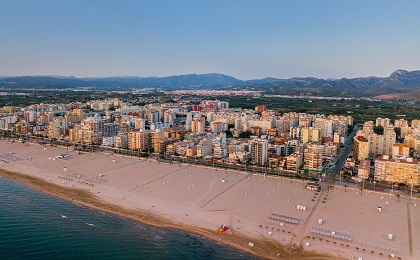
The Valencia study group meets every two weeks with a group of readers from Gandía in that Valencian town. On the other hand, the group of readers from Gandía meets every Saturday. If you are interested in participating in their meetings, you can contact the group coordinator, Sergi, at hambrosia26@gmail.com.
¶ UBIS “In the Spotlight” Presentation Series
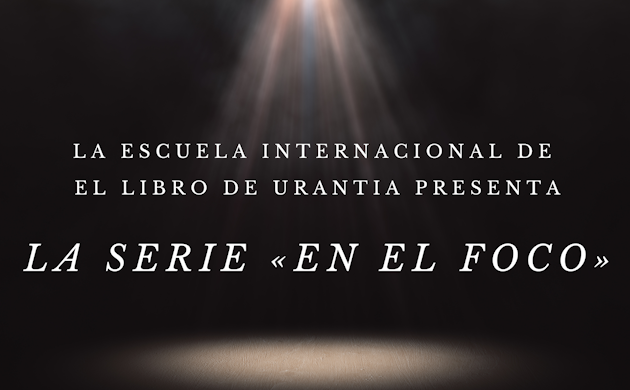
The Uran_tia Book International School (UBIS) offers a series of “In the Spotlight” webinars, related to topics from The Urantia Book_ or the reading community.
In Spanish, sessions last between 60 and 90 minutes and are held one Saturday a month at 6 pm (Madrid, Paris, Rome time). The presenter gives an introductory presentation on the topic in question, after which there is an opportunity for the participants to participate in a debate.
This is the presentation scheduled for the month of March:
Day: Saturday, March 2
Time: 18:00 hours CET (Madrid, Paris, Rome)
Title: Life in the face of uncertainty
Presented by: Eduardo Altuzarra
Zoom Room: https://urantia-org.zoom.us/j/5136302555
You can watch the video of the previous session at this link
https://youtu.be/OmD3rVbAFX0?si=jbEHh9CuWwNhoFcw
¶ Urantia Talk for March

The Urantia Association from Spain organizes and sponsors the so-called “Urantian talks”, Zoom sessions in which a presenter offers a starting topic, followed by a moderated debate among the attendees.
This is the talk scheduled for the month of March:
Friday 8: A vision from Chaos to Harmony (SalEnSatUrn)
Location: Zoom room of the Association
Time: 7:00 p.m. (Spanish peninsular time)
¶ About the Luz y Vida newsletter

Luz y Vida is the newsletter of the Urantia Association of Spain. From 2005 to 2016 it was published in PDF format and distributed by post and email to the association’s reader list, but is currently distributed in newsletter format from HTML content.
If you wish to receive the newsletter in your email, contact the association to be subscribed to the recipient list.
All work and news from readers and study groups are welcome, so if you wish to share any secondary work, writing, outline, image, etc., you can send it to the association and we will publish it after evaluating its suitability. Likewise, the Communications Committee of the board of directors of the Urantia Association of Spain reserves the right to edit it to meet minimum spelling quality standards.
¶ References
- Index of the magazine “Luz y Vida” of the Association of Spain
- This article from the magazine “Luz y Vida Online”
- Index of the magazine “Luz y Vida Online”